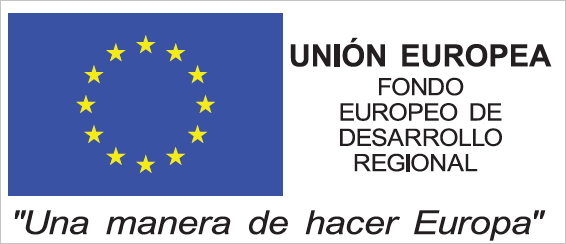 AMBAR, coordinator of the TeDFES project, is a telecommunications systems company and is also active in the development of new systems, specialized in the global integration of communication systems. Its activity is focused on the design, installation and maintenance of convergent solutions within the fields of Cybersecurity, Data, Voice, Security / Energy and Image. Likewise, it actively works in the development of R + D + i projects, some of which have the support of public entities that promote innovation and technological development of Spanish companies. AMBAR applies Research, Development and innovation to all the products and services they commercialize, in order to present innovative and cutting-edge proposals to customers that contribute to a more prosperous society. Currently, AMBAR has more than 1,600 clients, including 17 IBEX35 companies, for which we design, install and integrate Telephony, Data, Videoconference, Security and Image systems.
AMBAR, coordinator of the TeDFES project, is a telecommunications systems company and is also active in the development of new systems, specialized in the global integration of communication systems. Its activity is focused on the design, installation and maintenance of convergent solutions within the fields of Cybersecurity, Data, Voice, Security / Energy and Image. Likewise, it actively works in the development of R + D + i projects, some of which have the support of public entities that promote innovation and technological development of Spanish companies. AMBAR applies Research, Development and innovation to all the products and services they commercialize, in order to present innovative and cutting-edge proposals to customers that contribute to a more prosperous society. Currently, AMBAR has more than 1,600 clients, including 17 IBEX35 companies, for which we design, install and integrate Telephony, Data, Videoconference, Security and Image systems.
 The Photonics Engineering Group (PEG) of the University of Cantabria generates knowledge and technique in the Photonic field with a special focus on solving real problems (not yet resolved or insufficiently determined) and, in the search for their solution, generate knowledge and technique that gives rise to publications, thesis and patents. Since its foundation PEG has been focused on Photonic/Optical/Fiber optic sensors; fiber light sources; Optoelectronics Instrumentation; Techniques of detection, Measurement and Monitoring of events and processes using image for any sector of application. Without neglecting collaborations proposed from other sectors, PEG has recently decided to focus its work on R&D&I, mainly, in life sciences and health. This decision is backed by a great progress in the Photonics knowledge, methods and techniques able to be used in biological sciences and health that are significantly contributing to the solution of several of the “societal challenges” of our time. PEG has joined the Centro de Investigación Biomédica en Red (CIBER-BBN) of IS Carlos III (2016), and also joined at the Instituto de Investigación Sanitaria de Valdecilla (IDIVAL) and set the Photonics for the Life and Health program.
The Photonics Engineering Group (PEG) of the University of Cantabria generates knowledge and technique in the Photonic field with a special focus on solving real problems (not yet resolved or insufficiently determined) and, in the search for their solution, generate knowledge and technique that gives rise to publications, thesis and patents. Since its foundation PEG has been focused on Photonic/Optical/Fiber optic sensors; fiber light sources; Optoelectronics Instrumentation; Techniques of detection, Measurement and Monitoring of events and processes using image for any sector of application. Without neglecting collaborations proposed from other sectors, PEG has recently decided to focus its work on R&D&I, mainly, in life sciences and health. This decision is backed by a great progress in the Photonics knowledge, methods and techniques able to be used in biological sciences and health that are significantly contributing to the solution of several of the “societal challenges” of our time. PEG has joined the Centro de Investigación Biomédica en Red (CIBER-BBN) of IS Carlos III (2016), and also joined at the Instituto de Investigación Sanitaria de Valdecilla (IDIVAL) and set the Photonics for the Life and Health program.







